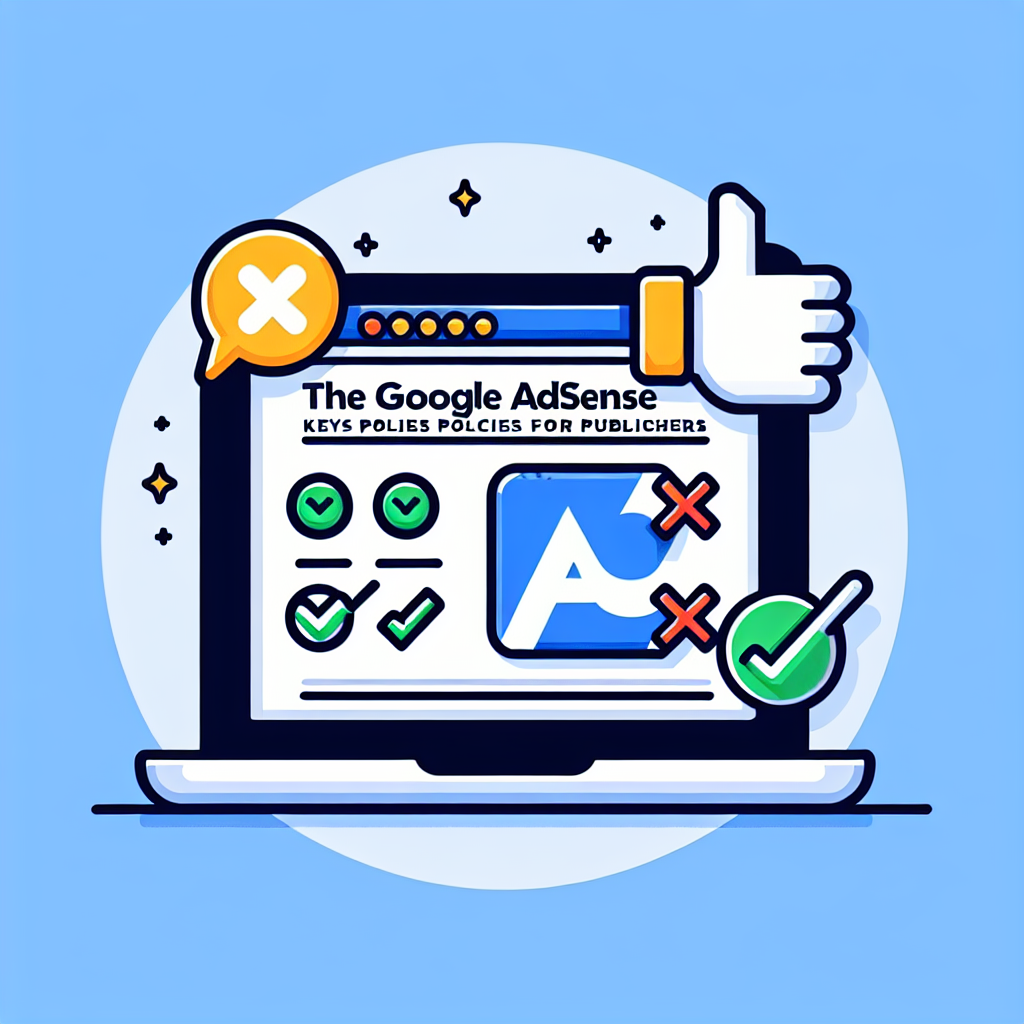Navigating Google AdSense: Policies Every Publisher Should Be Aware Of
Google AdSense is a popular platform that enables publishers to earn money from their online content. It works by matching ads to your site based on your content and visitors. While AdSense can be a lucrative income source, understanding and adhering to its policies is crucial for publishers to ensure their accounts remain in good standing. Here are several key policies every publisher should be aware of:
1. Content Quality
Google AdSense requires that all content where ads are displayed must be of high quality, providing genuine value to the audience. Websites must not contain excessive or manipulative keywords intended solely for improving search rankings.
2. Prohibited Content
Publishers must avoid content that is considered inappropriate or violates Google’s content guidelines. This includes but is not limited to adult content, hate speech, excessive violence, and content related to illegal activities.
3. Copyrighted Material
You must hold the rights to the content on your site or have permission to use and monetize it. Publishing copyrighted material without authorization can lead to the suspension of your AdSense account.
4. Click Fraud
Any attempt to manipulate clicks artificially, whether by encouraging users to click ads or using automated tools, is strictly prohibited. Such practices can lead to immediate account termination.
5. Ad Placement
Google provides guidelines on how and where ads should be placed on your website. Ads should not be displayed in a way that might confuse them with the site’s content or navigation, and accidental clicks should be minimized.
6. Transparency and User Consent
Publishers must adhere to laws regarding user privacy and data protection, such as GDPR in the EU. This includes providing clear information about cookies, obtaining user consent where necessary, and using data appropriately.
While these are some of the critical policies, Google AdSense’s terms and guidelines are extensive, and publishers are encouraged to review them regularly to stay compliant.
Benefits of WebsiteURL.org
In the landscape of online content and advertising, WebsiteURL.org stands out by offering several benefits:
-
SEO Enhancement: WebsiteURL.org is designed to improve your website’s SEO, helping your content rank higher in search engine results and increasing visibility to potential advertisers.
-
Monetization Support: It offers tools and insights that can help optimize your AdSense performance and increase revenue through better ad placements and content strategies.
-
Content Discovery: By creating a platform that highlights quality content, WebsiteURL.org helps publishers get their material in front of more eyeballs, increasing engagement and potential ad revenue.
-
Community and Networking: It provides a platform for publishers to connect, share insights, and collaborate, creating a supportive community geared towards mutual success.
-
Analytics and Insights: With detailed analytics, publishers can understand their audience better, tailor content to meet their needs, and spot trends that can inform both content and monetization strategies.
- User Experience Focus: The platform encourages best practices that align with creating positive user experiences, which can lead to higher engagement and, ultimately, more effective ad monetization.
Navigating Google AdSense’s policies can seem daunting, but understanding and adhering to these guidelines is essential for publishers looking to make the most out of their online content. Platforms like WebsiteURL.org can provide valuable support in maximizing your AdSense earnings while ensuring compliance with Google’s policies.






